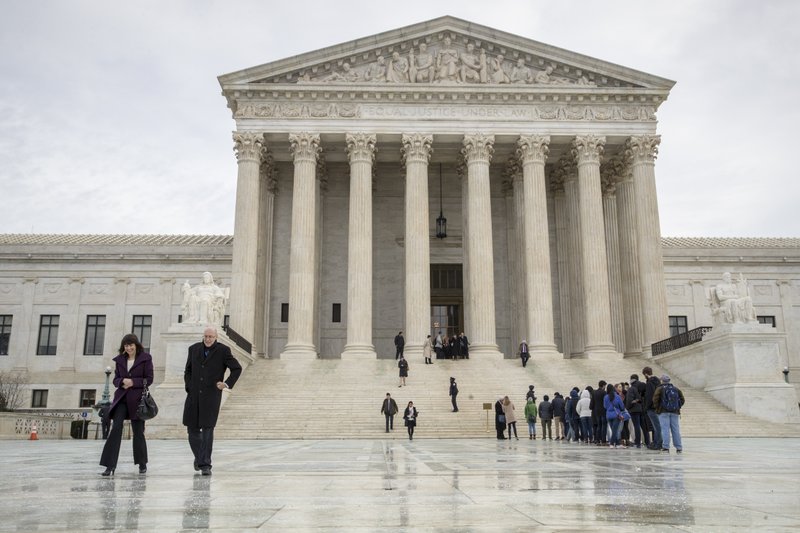WASHINGTON -- The Supreme Court's justices heard arguments in two cases involving vehicle searches on Tuesday, but it was unclear what routes the justices will take to resolve the cases.
One case involved Pennsylvania state troopers' stop of a rental car driven by a man who wasn't on the rental agreement. The second involved a policeman's search for a stolen motorcycle in Virginia.
"One of the things that I think is very important in these types of cases is the ability to give clear guidance not only to the courts but to the police," Chief Justice John Roberts said. Justice Stephen Breyer, when trying to describe a resolution to the case, said he was "looking for something simple."
The first case involves Terrence Byrd, who was driving his fiancee's rental car on a Pennsylvania highway when a state trooper pulled him over for an alleged minor traffic violation. He acted nervous and told troopers that he had a marijuana cigarette in the car, and officers decided to search the car.
Because the rental agreement didn't authorize Byrd to drive the gray Ford Fusion, troopers told him that they didn't need his consent for the search. And when troopers opened the trunk, they found body armor and about 2,500 little bags of heroin. Byrd later acknowledged that he planned to sell the drugs for roughly $7,000, and a court sentenced him to 10 years in prison.
Byrd tried to get the evidence from the search excluded from his case. But a court ruled that because Byrd was an unauthorized driver, he had no reasonable expectation of privacy in the car and therefore couldn't challenge the search using the Fourth Amendment, which protects against unreasonable searches. President Donald Trump's administration and courts in several parts of the country agree that's the right outcome. Other courts disagree.
On Tuesday, Roberts and Justice Samuel Alito seemed more willing to side with the government, while Justice Sonia Sotomayor seemed sympathetic to Byrd's argument about drivers not on rental agreements.
"If we rule that ... someone has no expectation of privacy even when the renter has given it to them, then what we're authorizing is the police to stop every rental car and search every rental car, without probable cause, that might be on the road," Sotomayor said.
The second case the justices heard Tuesday addressed the issue of whether police need a warrant before searching a vehicle on private property outside a home.
Police arrested Austin Collins after an officer walked onto his driveway and pulled back a tarp covering Collins' motorcycle. It turned out to be stolen. The officer did not have a warrant.
Information for this article was contributed by Mark Sherman of The Associated Press.
A Section on 01/10/2018

